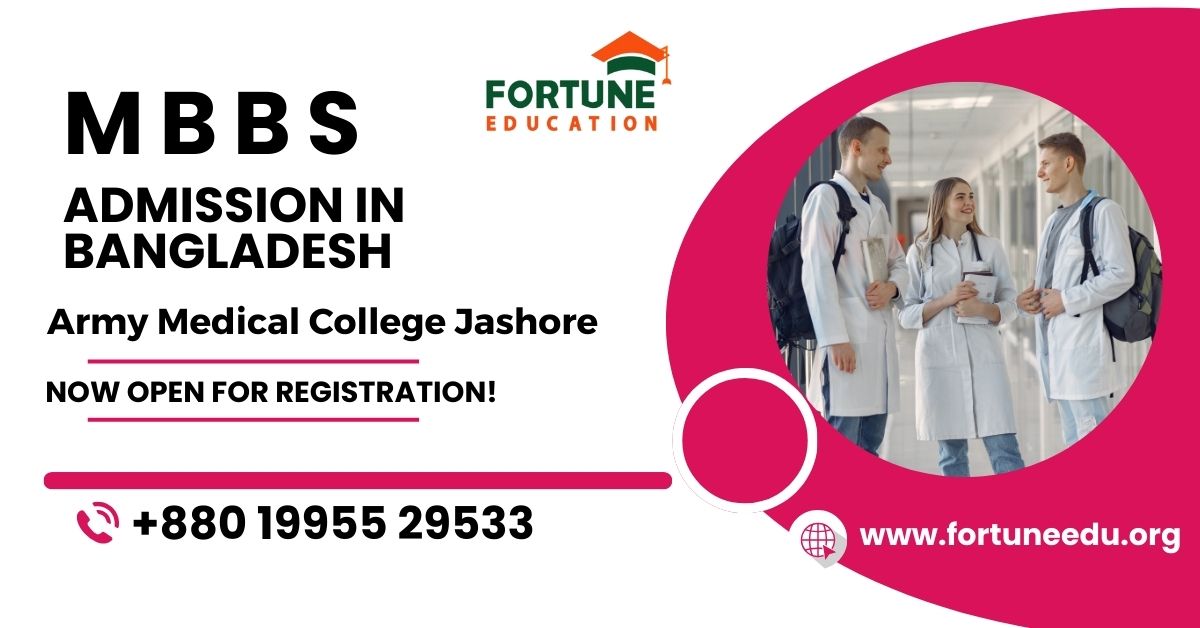Practicing medicine in India after earning an MBBS degree from a foreign country involves several crucial steps and requirements set by the National Medical Commission (NMC), formerly known as the Medical Council of India (MCI).
Requirements for practicing medicine in India after foreign MBBS degree
These regulations ensure that the medical education received abroad meets Indian standards and that candidates are well-prepared for the Indian healthcare environment. Here’s a comprehensive overview of the requirements for practicing medicine in India after obtaining a foreign MBBS degree:
1. Eligibility Certificate from the NMC
Before heading abroad for medical studies, Indian students must obtain an Eligibility Certificate from the NMC. This certificate ensures that the foreign medical college is recognized by the NMC and that the student is eligible to pursue MBBS abroad.
2. Foreign Medical Graduate Examination (FMGE)
- Overview: The FMGE, also known as the Screening Test, is a licensure examination conducted by the National Board of Examinations (NBE) in India for medical graduates who have completed their MBBS from outside India.
- Eligibility: To be eligible for the FMGE, candidates must possess a primary medical qualification from a medical institution outside India. Additionally, their degree must be recognized by the World Directory of Medical Schools (WDOMS) and the NMC.
- Exam Pattern: The FMGE is conducted twice a year and comprises two papers, each containing 150 multiple-choice questions (MCQs) without negative marking.
- Passing Criteria: Candidates need to score at least 150 out of 300 marks to pass the FMGE.
3. Compulsory Rotating Residential Internship (CRRI)
Candidates who pass the FMGE are required to undergo a one-year Compulsory Rotating Residential Internship in India. This internship must be completed at a hospital recognized by the NMC.
4. Permanent Registration with the NMC
After successfully completing the CRRI, foreign medical graduates must register with the NMC to obtain a permanent registration number. This registration is a prerequisite for practicing medicine in India.
5. Ethical Guidelines and Continuing Medical Education
Practicing physicians in India are expected to follow the ethical guidelines laid out by the NMC. They are also encouraged to participate in Continuing Medical Education (CME) and other professional development activities to stay updated with the latest advancements in the medical field.
Additional Considerations
- Documentation: Ensure all your academic and professional documents, including your foreign MBBS degree, transcripts, and internship completion certificates, are duly authenticated and translated (if not in English).
- Preparation for FMGE: Given the competitive nature of the FMGE, comprehensive preparation is crucial. Many candidates opt for coaching classes or self-study through various preparatory materials available.
Recent Developments
The Government of India has introduced the National Exit Test (NEXT) proposal, which aims to replace the FMGE with a common final-year MBBS examination for both Indian and foreign medical graduates. This examination will serve as a licensure test as well as a criterion for entrance into postgraduate programs. As of my last update in April 2023, the implementation details and timeline for NEXT were still under discussion.
Successfully navigating these steps allows foreign medical graduates to establish their medical practice in India, contributing their skills and knowledge to the Indian healthcare system.
Strategic Approach for Foreign Medical Graduates Aiming to Practice in India
Foreign medical graduates who wish to practice medicine in India must navigate a structured pathway, ensuring they meet all the regulatory requirements set by the National Medical Commission (NMC). Beyond the fundamental steps outlined previously, here’s an expanded guide on strategic planning and additional considerations for integrating into the Indian medical landscape successfully.
In-depth Preparation for FMGE/NEXT
- Study Plan: Develop a rigorous study plan focusing on the FMGE syllabus, which covers all subjects taught during the MBBS course. Given the exam’s breadth, starting early and allocating specific time blocks for each subject can significantly impact your preparation.
- Coaching and Resources: Consider enrolling in a coaching institute specializing in FMGE preparation. These institutes offer structured courses, mock tests, and access to a community of fellow aspirants for support. Additionally, a plethora of online resources, including question banks, lecture series, and forums, can augment your study regimen.
- Mock Tests and Past Papers: Regularly practicing with mock tests and analyzing past exam papers can help identify weak areas, familiarize you with the exam pattern, and improve time management skills.
Navigating the CRRI
The Compulsory Rotating Residential Internship (CRRI) is not just a formality but a critical phase for bridging theoretical knowledge with practical skills.
- Selecting a Hospital: Aim for hospitals recognized for comprehensive exposure across various specialties. This is an opportunity to understand the healthcare delivery system in India firsthand.
- Active Participation: Engage actively during your internship. Take initiative, seek learning opportunities, and try to work closely with senior doctors and mentors. This proactive approach can be immensely beneficial for your professional growth.
Permanent Registration with the NMC
Obtaining permanent registration with the NMC is the final step toward starting your medical practice in India.
- Documentation: Ensure all documents, including your MBBS degree, transcripts, FMGE/NEXT passing certificate, and CRRI completion certificate, are complete and properly organized before submission.
- Ethical Practice: Familiarize yourself with the NMC’s ethical guidelines for practicing doctors in India. Upholding these standards is paramount for maintaining the integrity and trust of the medical profession.
Continuing Professional Development
The medical field is ever-evolving, making continuous learning and adaptation a necessity for practitioners.
- Continuing Medical Education (CME): Participate in CME programs, workshops, and conferences. These platforms offer insights into the latest research, treatment modalities, and technological advancements in medicine.
- Skill Enhancement: Consider pursuing additional qualifications or specialization courses that can enhance your clinical skills and expand your professional scope.
Networking and Professional Integration
Building a professional network can significantly influence your career trajectory in medicine.
- Medical Associations: Joining professional medical associations can provide networking opportunities, access to educational resources, and a platform for advocacy on healthcare issues.
- Mentorship: Seek mentorship from experienced medical practitioners who can guide you through the nuances of the healthcare system in India and advise on career advancement.
Transitioning from a foreign medical graduate to a practicing doctor in India is a journey marked by rigorous preparation, adherence to regulatory requirements, and continuous professional development. By strategically navigating this pathway, leveraging available resources, and committing to ethical practice, foreign medical graduates can make meaningful contributions to the healthcare landscape in India and embark on a rewarding medical career.
Study MBBS in Bangladesh
Why Choose Study MBBS in Bangladesh?
Choosing to study MBBS in Bangladesh is an option that many students, especially from neighboring countries like India, Nepal, and Bhutan, consider for various compelling reasons. The combination of quality education, affordability, and cultural proximity makes Bangladesh an attractive destination for medical studies. Here are key reasons why students opt for MBBS programs in Bangladesh:
1. Quality of Education
- Globally Recognized Degree: The MBBS degree from Bangladesh is recognized by leading international bodies, including the World Health Organization (WHO), making graduates eligible to practice globally after clearing the respective country’s licensing exams.
- Similar Curriculum to India: The MBBS curriculum in Bangladesh closely mirrors that of India, particularly due to both countries following the British pattern of medical education. This similarity ensures a comprehensive learning experience that is on par with Indian standards, making it easier for Indian students to adapt and for all students to prepare for international licensing exams.
2. Affordable Cost of Education
- Lower Tuition Fees: Compared to the escalating costs of medical education in countries like the USA, UK, Australia, and even India, Bangladesh offers a more affordable alternative without compromising the quality of education.
- Cost of Living: The cost of living in Bangladesh is relatively low, further reducing the overall expenses incurred by international students during their course of study.
3. Clinical Exposure
- Practical Training: Medical colleges in Bangladesh provide ample clinical exposure to students through affiliations with numerous teaching hospitals. This hands-on experience is crucial for building practical skills in patient care.
- Patient Flow: The high patient inflow in hospitals offers students a broad exposure to various diseases and conditions, enhancing their clinical learning experience.
4. Cultural and Linguistic Similarity
- Comfortable Environment: For students from the Indian subcontinent, the cultural and linguistic similarities make Bangladesh feel like a home away from home. This cultural affinity helps students adjust more easily to their new environment.
- English Medium Instruction: The medium of instruction for MBBS courses in Bangladesh is English, which is convenient for international students. However, learning the basics of Bengali can be beneficial for interacting with patients.
5. No Entrance Test for Admission
- Direct Admission: Unlike many countries that require students to pass entrance exams for admission into MBBS programs, Bangladesh offers direct admissions based on the student’s secondary and higher secondary academic performances. This policy reduces the pre-admission pressure and makes the application process more straightforward.
6. Safe and Welcoming Environment
- Safety: Bangladesh is known for its warm hospitality and has a relatively safe environment for international students.
- Student Support: Medical colleges in Bangladesh offer support services to international students, including assistance with accommodations, visa processes, and integration into the student community.
7. MCI Screening Test Coaching
- FMGE/NEXT Preparation: Some medical colleges in Bangladesh also provide coaching for the Foreign Medical Graduates Examination (FMGE) in India, now known as the National Exit Test (NEXT), which is a licensing exam for students wishing to practice in India after completing their MBBS abroad.
Conclusion
Studying MBBS in Bangladesh offers a blend of quality education, affordable costs, and a supportive environment that is conducive to learning. For students seeking an internationally recognized medical degree without the financial strain of expensive tuition fees, Bangladesh presents a viable and attractive option.


